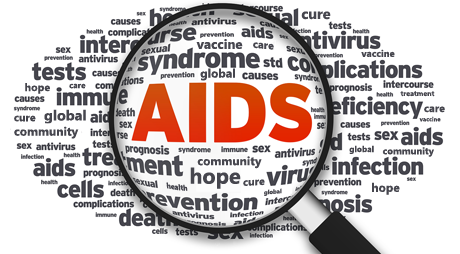HIV Activists from across India hold national consultation
August 12, 2015 | Wednesday | News | By BioSpectrum Bureau
HIV Activists from across India hold national consultation
HIV remains one of the most challenging viral diseases worldwide and for India- despite substantial progress in reducing new incidence of HIV.
HIV AIDS is facing a dwindling focus globally both financially as well as programmatically, and the past two years have witnessed many challenges in all HIV related services including ART treatment, care & support services, and prevention. Recurring supply chain management issues in almost all health commodities have affected the overall quality of life of persons living with HIV (PLHIV) and also HIV prevention work.
PLHIV networks in their respective states or districts have tried to raise their voices and demand solutions but a common voice which can build sustainable pressure on concerned authorities is lacking. AIDS Healthcare Foundation (AHF) in collaboration with National Coalition of people living with HIV in India (NCPI+) called for a 3 day 'National consultation' of 40 key PLHIV community leaders from all across the country and other legal and parliamentarian advocacy bodies including Forum of Parliamentarians on HIV/AIDS (FPA) on the 5th, 6th and 7th August 2015 to create this voice and work on a joint action plan with multi-stakeholder participation.
Dr Sita Ratna Devi, India Bureau Chief, AHF and the organisor of the event said, "The consultation is intended to reinvigorate the civil society movement for HIV advocacy in India while building a road map for addressing the issues that are acting as a setback to the program. The recent months have exhumed many glaring gaps in the implementation of the HIV program in the country and adequate advocacy, especially from the PLHIV community, is essential to bring back focus of the government for a robust HIV program. The need of the timeis to use innovative and adoptcontemporary methods like community based HIV testing using rapid whole blood test kits and task shifting measures in order to increase accessibility within the community while keeping the implementing costs of the outreach programs low. India definitely can implement these strategies to reach out to a large proportion of the total estimated 2.1 million who are unaware of their HIV status but there needs to be an enhanced political and governmental commitment for the same."
Mr Manoj Pardesi, General Secretary, National Coalition of People living with HIV AIDS (NCPI+) in India shared that "treatment is the best tool for prevention available at present but for it to be effective continuous supply of medicines and monitoring kits in ART centres is essential which will require robust logistical and supply chain management systems to be implemented in order to avoid the frequent stock-outs that is plaguing national programme. Without bridging these gaps, treatment expansion, and thus the goal of 20x20, will not be efficiently achieved. The purpose of this consultation identify such gaps and build a strategy to address them through adequate advocacy measures".
Mr Oscar Fernandes, MP and President,FPA, shared that "Advocacy through parliamentary discussions and actions has culminated to bring major successful changes in the past. We are hopeful that such consultations will provide us with pertinent tools for bringing more positive changes in policies that could affect many more lives." Speaking on relevant issues where the parliament has already initiated action for change, he also added that "Stigma and discrimination forms a major barrier to the HIV programmatic outreach thus,HIV/AIDS Bill should be passed in both the houses of the parliament. In addition, it needs to be tackled through innovative information, education and communication (IEC) efforts. A concerted effort from multiple stakeholders such as parliamentarians, non-governmental organisations, UN agencies, media and most importantly from communities and civil society has helped to build the momentum on the HIV/AIDS Bill. The Parliamentary Standing Committee on Health and Family Welfare reviewed the Bill and has submitted its report, and we are confident that significant progress will be made on this very important legislation."
Mr Rashid Alvi, Senior leader, INC and Founding member Forum of Parliamentarians on HIV/AIDS present at the event said, "I am concerned on dilution of the HIV/AIDS prevention efforts in the country. Over the last decade, with the efforts of all stakeholders, HIV infections have reduced remarkably by 57%. We don't have current estimated figures for HIV/AIDS but, I am afraid that reduction in budgets for AIDS programme, reorganization of National AIDS control programme may be devastating for the country in long term. The issue of HIV/ AIDS is above the party lines, and I urge the government to pay due attention to the issue related to HIV."
Dr Nochiketa Mohanty, Country Program Manager, AHF India present at the consultationsaid, "This is a part of AHF's 20x20 global campaign to scale up access to antiretroviral therapy (ART) for at least 20 million people globally by year 2020. It is a call to action for those who won't sit on the sidelines as 23 million people living with HIV suffer and die without life-saving medication. The larger objective of the initiative is to change the global mindset of people towards HIV testing and investing in treatment scale up that would eventually yield humanitarian and economic benefits".
Currently only 13.6 million people out of an estimated 36 million people living with HIV/AIDS worldwide are on ART, which is far too low. Millions of people still die of AIDS-related causes every year because they cannot get the medicine they need.









